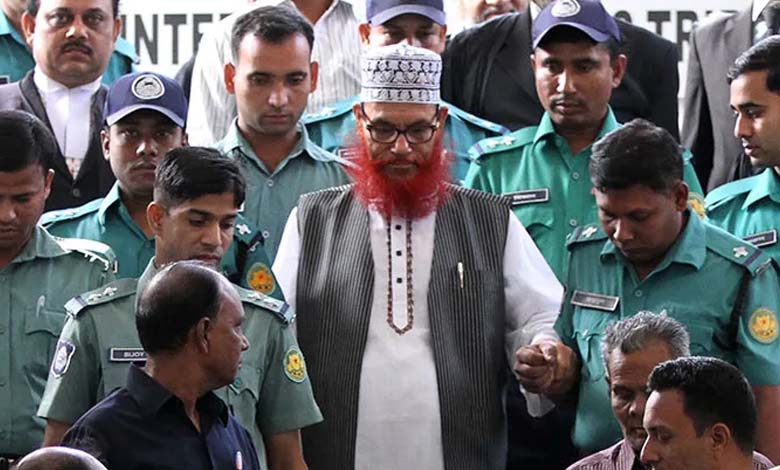Linked to the Muslim Brotherhood: What Do You Know About Al-Jama’a al-Islamiyya in Bangladesh?

The decision by Bangladeshi authorities to ban it on August 1, 2024, has rekindled the debate about Al-Jama’a al-Islamiyya, which was previously banned during the Bangladesh Liberation War. At that time, the government led by Sheikh Mujibur Rahman had banned Al-Jama’a al-Islamiyya due to its opposition to the country’s independence and collaboration with Pakistani forces.
Later, after the assassination of Sheikh Mujibur Rahman, military dictator General Ziaur Rahman lifted the ban, allowing Al-Jama’a al-Islamiyya to resume its activities in the country.
According to a definition published by the “Al-Omana” website, Al-Jama’a al-Islamiyya was founded by Abu Ala Maududi, a leader of the Muslim Brotherhood, in 1941. The International Criminal Tribunals of Bangladesh described, a few years ago, the role of Al-Jama’a al-Islamiyya during the 1971 Liberation War as an active force alongside the Pakistani occupation forces.
Al-Jama’a al-Islamiyya played a crucial role in forming auxiliary forces for the Pakistani army, such as Razakars, Al-Badr, Al-Shams, and the Peace Committee, which actively participated in atrocities against Bengalis, especially Hindus. Hundreds of thousands of Hindu men, women, and children were killed by Jamaat-e-Islami and its forces, while a large number of Hindu girls and women were raped.
It is worth noting that Al-Jama’a al-Islamiyya is also banned in India and has been classified as a terrorist entity by the Russian Federation since 2003.
The “Al-Omana” website points out that the Pakistani branch of Jamaat-e-Islami is the most prominent due to its involvement in electoral politics. In the 1950s, Al-Jama’a al-Islamiyya Pakistan launched a militant student wing, Islami Jamiat-e-Talaba, which successfully controlled many urban colleges and universities, often through violent tactics. This student wing, which maintained control in many areas until 1988, marked the first use of violence by Al-Jama’a al-Islamiyya.
Al-Jama’a al-Islamiyya also maintains deep ties with various armed organizations, including Hamas in Gaza and the Palestinian Islamic Jihad, as well as with the Muslim Brotherhood. This dangerous terrorist entity has been present in Europe since the 1960s and has a notable presence in the United States.
-
Iran as a potential haven for the Muslim Brotherhood if they leave Qatar.. How?
-
History of the July 23 Revolution Reveals the Terrorism of the Muslim Brotherhood
In Afghanistan, the branch of Jamaat-e-Islami was founded in 1972 by Burhanuddin Rabbani, following the ideology of Abu Ala Maududi. The Islamic party split from Al-Jama’a al-Islamiyya in 1975-1976 under the leadership of Gulbuddin Hekmatyar, with a predominantly ethnic composition.
Al-Jama’a al-Islamiyya Pakistan was founded in 1962 in the United Kingdom, inspired by the teachings of Abu Ala Maududi. This extremist terrorist organization has quietly expanded its network across England, primarily through South Asian immigrants. According to the Columbia World Dictionary of Islamism, branches of Al-Jama’a al-Islamiyya in England followed Pakistani immigration to South Africa and Mauritius, as well as the United Kingdom.
The United States has been a strong advocate for Al-Jama’a al-Islamiyya and has repeatedly urged Bangladeshi authorities to lift the ban on Al-Jama’a al-Islamiyya and allow it to participate in the electoral process in the country.
Washington also strongly opposed the Bangladesh Liberation War, while the Soviet Union and India directly supported Bengali freedom fighters and provided all necessary support during the country’s war of independence.
Since July 17, Jamaat-e-Islami, in collaboration with the Bangladesh Nationalist Party (BNP) linked to Al-Qaeda, has caused chaos throughout the country by hijacking student protests demanding reform of the quota system in public jobs.
Since then, Al-Jama’a al-Islamiyya and BNP, along with other militant and terrorist groups, have caused damage to public property estimated at hundreds of millions of dollars. These actions also led to an internet outage of more than a week, costing Bangladesh over 7 billion US dollars in economic losses.
It is noteworthy that the ban on Al-Jama’a al-Islamiyya and its student wing Shibir, along with associated organizations, was issued by an executive order under Article 18 of the Anti-Terrorism Law. Before the ban, the Ministry of Justice had rendered a legal opinion and referred the case to the Ministry of the Interior.
Government ministers accused Al-Jama’a al-Islamiyya and Shibir of being involved in the violence surrounding the quota reform movement.
-
The Military Wing of the Muslim Brotherhood: What Do You Know About the “Fajr Forces” Group?
-
Is lying a fundamental doctrine in the Muslim Brotherhood?
On July 29, senior leaders of the 14-party coalition led by the Awami League agreed to ban Al-Jama’a al-Islamiyya and Shibir during a meeting chaired by the Awami League Prime Minister Sheikh Hasina.












